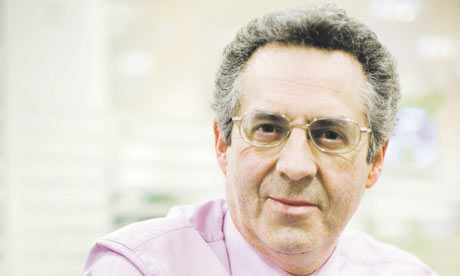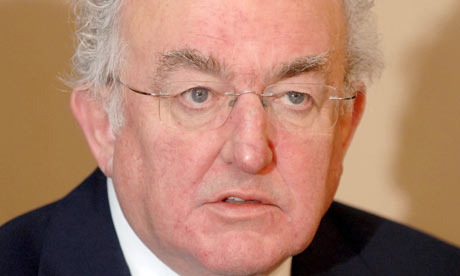Last night I went to a panel debate about banking, taxation and the Robin Hood Tax organised by CAFOD, St Paul’s Institute, Tearfund and the Salvation Army, held at St Paul’s Cathedral.
The event, expertly chaired by Today programme presenter and former BBC economics editor Evan Davis, was attended by several hundred people all keen to hear what the panellists had to say about whether banks have a responsibility to contribute to the common good and if the proposed Robin Hood Tax is the solution.
The Robin Hood Tax campaign has over a quarter of a million supporters in more than 25 countries worldwide and proposes:
· A tax of 0.05% on financial transactions such as stocks, bonds, foreign currency and derivatives.
· Raising up to £20 billion a year in the United Kingdom.
· Spending 50% of the money on fighting poverty in the United Kingdom, 25% on fighting poverty overseas and 25% on mitigating the effects of climate change around the globe.
Baroness Shirley Williams, prominent Catholic member of the House of Lords and co-founder of the Liberal Democrats, kicked off the debate by putting forward the moral case for the Robin Hood Tax. She pointed out that the argument has existed far longer than the Robin Hood Tax campaign as the idea of the Tobin tax, put forward in the 1970s by the Nobel award winning James Tobin, has been around for a long time. She said that this kind of tax could be the ‘sand in the oyster’ that helps to produce a purer, clearer and fairer banking sector. She lamented the ever-increasing gap between the rich and the poor, the unequal society in which we live now and the scandalous bonus culture of the banks, which, she argued, have already gone back to their bad ways. She showed the audience how much money could be raised to alleviate poverty in the UK, could be spent on international aid and to solve international crises such as climate change.
The next speaker presented a contrasting view of the Robin Hood Tax. Michael Green, an independent economist and co-author of “The Road from Ruin: A New Capitalism for the Big Society” and “Philanthrocapitalism: How Giving Can Save the World”, began by saying that he is ‘deeply disturbed by the Robin Hood Tax’. He outlined his opposition to the Robin Hood Tax saying that he believes that a tax on banks would be passed on to the customers like you and me. He added that his ‘greatest concern is that the Robin Hood Tax is a distraction from the fundamental reform that global capitalism needs.'
Michael Izza, Chief Executive of the Institute of Chartered Accountants in England and Wales, was next up in the Robin Hood tax debate. He advocated a currency transaction levy and explained that we have the technology now to make this possible. Izza explained that in real terms, this currency transaction levy would take £5 from every £100,000 transaction, not a huge amount. He concluded by highlighting that the foreign exchange markets are an area of concern: ‘The Foreign Exchange markets are starting to show a lot of ‘bubble-like' characteristics.'
Former Anglican Bishop of Worcester, Rt Revd Peter Selby, concluded this section of the debate with a moral perspective on the financial industry. Although he agreed with the concept of taxing the rich to help the poor, he pointed out that 'taxation doesn't make something that isn't right alright’. He believes that the financial industry needs far more radical reform to serve the common good.
After the speeches, the panel took questions from the floor. There were some fantastic questions including one from Gavin Shuker MP about the possible international implications of the Robin Hood Tax and a question about whether the Robin Hood Tax is revenge for the financial crisis to which Shirley Williams responded that it is not but that it is an act of justice.
Evan Davis, who was chairing the debate, asked the audience a couple of questions about their attitudes to the Robin Hood Tax. He asked us whether we would prefer reform of the banking sector or the Robin Hood Tax, to which the overwhelming proportion preferred the former option. Many of us also said we would like to see both. At the end of the evening, however, the vast majority of the audience attending the debate said they were in favour of the Robin Hood Tax.
The Robin Hood Tax debate was very well organised by the four hosts and took place in a beautiful venue, the standard of debate was high and the arguments compelling, all in all, a very enjoyable and interesting evening.
Naomi Brandon
Public Affairs Intern at CESEW










